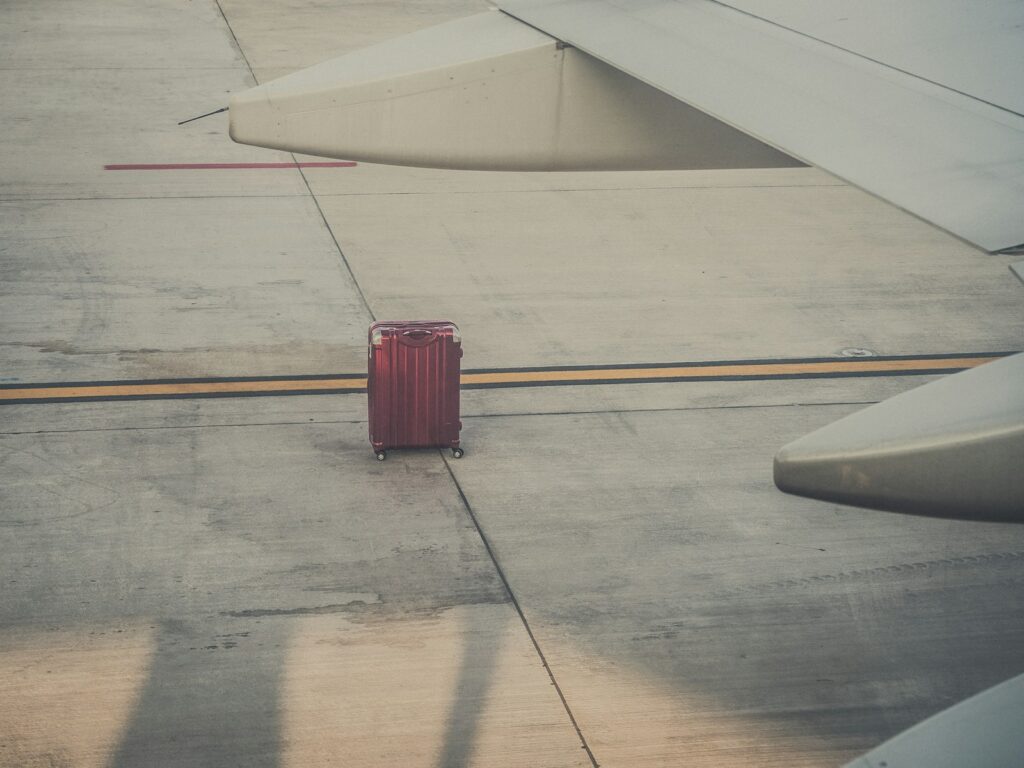Expert On What To Do If Your Luggage Is Lost Or Damaged And How To Avoid It

A leading travel expert has shared her advice on what to do if your luggage is lost.
With hundreds of thousands of Brits set to jet off on holiday for Easter, many will be left with the annual concerns their suitcase could go astray.
In the UK mishandled baggage reached a peak in 2022, with 7.6 pieces of luggage per 1000 passengers being lost, delayed or damaged.
That worked out at 26 million bags being misplaced.
Consumer champion Jane Hawkes, who runs a leading customer service advice website says it’s essential for passengers to know their rights and how to take action should they get separated from their luggage.
“If you’re jetting off this year, it’s important you know what action to take and how to claim for lost or damaged luggage.
“Prevention is also better than cure, so you should take steps to avoid your possessions being lost or damaged with my simple tips.
“Consumers are protected by the Montreal Convention and the Consumer Rights Act 2015 as long as you bought your ticket from a regulated provider.”
Here Jane outlines her tips for lost, delayed or damaged luggage
- Report the problem straight away
Passengers who have become separated from their baggage should report the issue straight away to the airline. This usually needs to be within 7 days so should check deadlines for your particular carrier.
Airlines have 21 days to find lost or delayed luggage and reunite it with owners. If luggage is returned within 21 days then passengers can claim compensation for delayed luggage. If not, then they can claim for lost luggage. Claims should be stated as being under the Montreal Convention to show the airline you know your rights.
Make sure you include supporting documents such as luggage labels, boarding cards and proof you reported the loss.
Report any damaged luggage immediately upon arrival at the airport. Most airlines have a dedicated baggage desk within the baggage claim area. You may be issued a Property Irregularity Report (PIR) but this does not guarantee that your claim will be accepted so you will need to submit a written claim to the airline within seven days. If your claim is approved, your airline may cover the cost of repairs or provide a replacement bag.
- Use all possible channels to get hold of the right person
Many package holiday flights land late at night or in the early hours so there may not be anyone manning the desk or on the telephone. In these circumstances it is important to use other ways of getting in contact with the airline to report the problem quickly.
Airlines will have a dedicated customer service team on X so a direct message or a post tagging them attracts attention.
You can also search for alternate numbers using https://www.saynoto0870.com
or asking on online forums as people often share numbers which have proved more successful.
CEO contact numbers and their email addresses are readily available online. This is an excellent way to expedite any issue for resolution.
- Don’t settle if you are unhappy with the response
If you are unhappy with the response of the airline, consider the use of Alternative Dispute Resolution (ADR) to mitigate your complaint and try to resolve it.
For aviation disputes in the UK there are two approved ADR schemes in this sector: AviationADR and CEDR. You can find out which airlines are a member of ADR here.
- Lower the chances with hand baggage only
In light of the increase in baggage issues in previous years try to travel with hand baggage only. Pack like a pro by rolling up clothes, putting socks and underwear into shoes, using travel bags or packing cubes and layer up and wear your biggest shoes so you have less to squeeze in to a cabin bag.
One of the biggest drawbacks to hand luggage only has been the liquids rules, but these have now been relaxed.
Passengers no longer need to remove liquids from their hand baggage and the 100ml liquid limit will be extended to 2 litres.
Many airports have already adopted these new rules, however, other airports have been given an extension to June 2025 including Manchester, Gatwick and Heathrow.
- Consider a tracker for your bags
If you do have to check in baggage, look into purchasing an air tag or alternate GPS tracker so at least you know where your suitcase is even if the airline doesn’t.
You should also opt for luggage which is easily identifiable by its colour or pattern and pick one which has a tough outer case. Many suitcases come with locks but you might want to consider adding your own.
You should also avoid checking in late as your bags will be last on and might not make that flight.
Image Source: Unsplash





